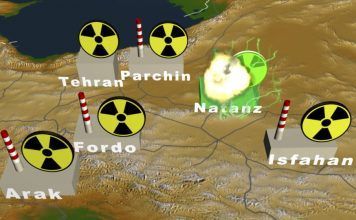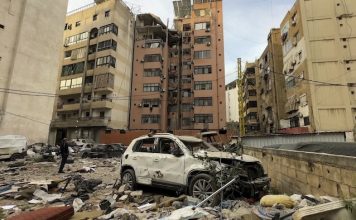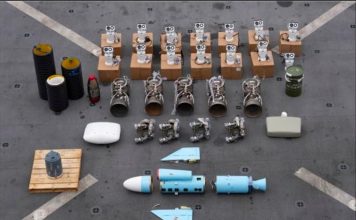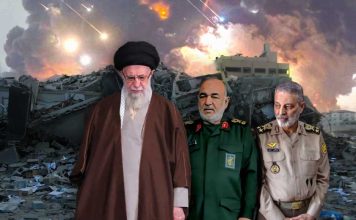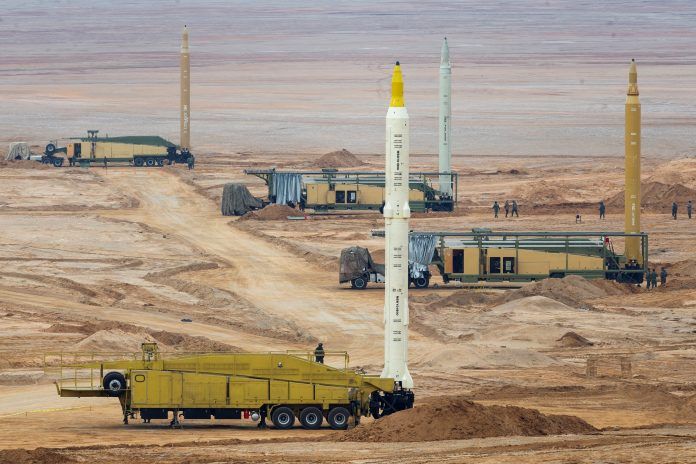
By Suleiman Al-Khalidi, James Mackenzie and Parisa Hafezi
AMMAN, April 12 (Reuters) – Iran has used earthquake relief flights to bring weapons and military equipment into its strategic ally Syria, nine Syrian, Iranian, Israeli and Western sources said.
The sources told Reuters that the goal was to buttress Iran‘s defences against Israel in Syria and to strengthen Syrian President Bashar al-Assad. Reuters is the first to report this development.
After the Feb. 6 earthquake in northern Syria and Turkey, hundreds of flights from Iran began landing in Syria’s Aleppo, Damascus and Latakia airports bringing supplies, and this went on for seven weeks, the sources said. More than 6,000 people died in all of Syria, according to the United Nations.
OPINION: Iran Is an Obstacle to Peace and Stability in the Middle East
OPINION: A Post-Islamic-Republic Iran Will Bring Stability to the Middle East
The supplies included advanced communications equipment and radar batteries and spare parts required for a planned upgrade of Syria’s Iran-provided air defence system in its civil war, said the sources, two regional sources and a Western intelligence source said.
Reuters spoke to Western intelligence officials, sources close to the Iranian and Israeli leadership as well as a Syrian military defector and a serving Syrian officer about the flights for this article.
When asked if Iran had used humanitarian relief planes after the earthquakes to move military equipment to Syria to enhance its network there and help Assad, Iran‘s mission to the United Nations in New York said: “That’s not true.”
Syria’s government did not respond to a request for comment.
Regional sources told Reuters that Israel quickly became aware of the flow of weapons into Syria and mounted an aggressive campaign to counter it.
Brigadier General Yossi Kuperwasser, an insider and former head of research in the Israel army as well as ex-general director of the Ministry of Strategic Affair said Israeli air strikes against the shipments relied on intelligence so specific that Israel’s military knew which truck in a long convoy to target.
[aesop_image img=”https://kayhanlife.com/wp-content/uploads/2021/03/2021-03-15T160523Z_937200688_RC2SBM9PGG9Y_RTRMADP_3_IRAN-GUARDS-MISSILES.jpg” panorama=”off” credit=”Iranian missiles are seen at an underground of the new ‘missile cite’ of Iran’s Revolutionary Guards naval unit at an undisclosed location in Iran, in this picture obtained on March 15, 2021. REUTERS./” align=”center” lightbox=”on” captionsrc=”custom” captionposition=”left” revealfx=”off” overlay_revealfx=”off”]
‘SIGNIFICANT MOVEMENTS’
An Israeli defence official, who asked to remain anonymous, told Reuters: “Under the guise of shipments of earthquake aid to Syria, Israel has seen significant movements of military equipment from Iran, mainly transported in parts.”
He said the aid was mainly delivered to Syria’s northern Aleppo airport. Shipments were organised, he said, by the Unit 18000 Syrian division of the Quds Force, the foreign espionage and paramilitary arm of Iran‘s Revolutionary Guards, led by Hassan Mehdoui.
Ground transportation was handled by the Quds Force’s Transport Unit 190 led by Bahanem Shahariri, he said. Reuters was unable to reach Mehdoui and Shahariri for comment. The Revolutionary Guards declined comment.
“Israel’s strikes also targeted a meeting of commanders of Iranian militias and shipments of electronic chips to upgrade weapons systems,” said Syrian military defector Colonel Abduljabbar Akaidi, who retains army contacts. Akaidi did not say where the meeting was held.
Aleppo’s runway was hit by Israel just hours after two Iranian cargo planes had landed with arms shipments under the pretext of aid relief, said a regional source, information that was confirmed by two other Western intelligence sources.
Brigadier General Esmail Qaani, head of the Revolutionary Guards’ Quds Force, was the first foreign official to set foot in Syria’s quake zone, a few days before Assad himself arrived. Reuters could not reach Qaani for comment. The Revolutionary Guards declined comment.
In the event of a humanitarian catastrophe, U.N. relief planes are allowed to seek landing rights from local authorities and humanitarian goods are exempt from sanctions. In this case Syrian authorities have granted landing rights to direct flights coming from Russia and Iran.
“The quake was a sad disaster but at the same time it was God’s help to us to help our brothers in Syria in their fight against their enemies. Loads of weapons were sent to Syria immediately,” said a regional source close to Iran‘s clerical leadership.
PINPOINT ISRAELI INTELLIGENCE
Israel has for years carried out attacks against what it has described as Iran-linked targets in Syria, where Tehran’s influence has grown since it began supporting Assad in the civil war that began in 2011.
A Syrian army officer who asked not to be named said the Israelis were stepping up efforts to defeat Iran in Syria.
“Why now? Simply because they have information that something is being developed quickly. They must stop it and hit it to slow it. The quake created the right conditions. The chaos that ensued allowed Iranian jets to land with ease,” he said.
In the aftermath of further earthquakes on April 3, Israeli targets have included weapons warehouses in the Jabal Manea Kiswa mountain range south of Damascus where Iranian troops and Lebanon’s Hezbollah have built what is probably their most fortified military site in Syria, a regional security source and two Western intelligence sources said.
A radar station used for drones was also hit on April 3, the regional source added, corroborating what two Western intelligence sources had told Reuters.
“We believe that Iranian militias have transferred huge quantities of ammunition – they have restocked quantities lost in previous Israeli drone strikes,” a Western intelligence source said, referring to Iranian flights since the Feb. 6 earthquake.
Iran Leader Urges Muslim States to Back Palestinians Militarily, Financially
(Additional reporting by Maya Gebeily in Beirut and Michelle Nichols in New York; Writing by Michael Georgy; Editing by Nick Macfie and Mark Heinrich)


